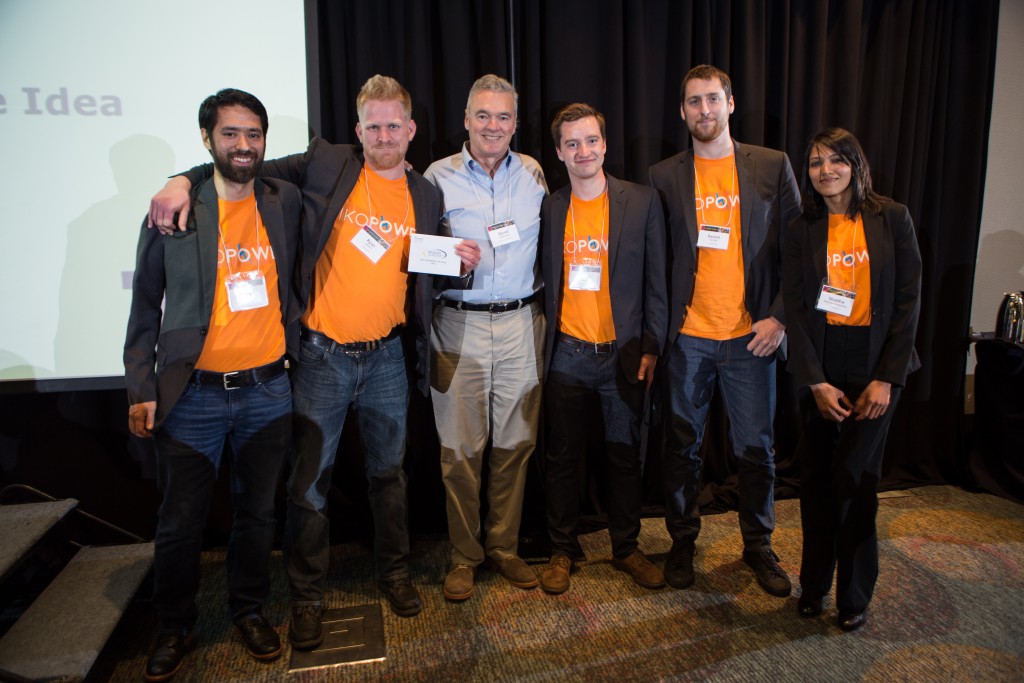JikoPower flies into SVP Fast Pitch 2015 final round
Ryan Ahearn (second from left) and his team attend the 2015 Business Plan Competition reception.
Ryan Ahearn wants every cooked meal in Kenya to come with a fully charged phone.
The senior mechanical engineering undergraduate student, with minors in both applied math and entrepreneurship, hopes to fly to Kenya as soon as Feb. 2016. His goal: come armed with 500 devices capable of using the energy generated by common cookstoves to power electronic devices like smartphones, iPads and laptops — devices many Kenyans own but are unable to fully use.
He and his team, JikoPower, have spent the last year developing a low-cost alternative to the expensive methods Kenyans use to get electricity. After only three months of fast-paced product development, JikoPower — then called FireBee — entered the March 2015 Alaska Airlines Environmental Innovation Challenge and won both the grand prize of $15,000 and the clean energy prize of an additional $5,000. In April 2015, they jumped into the UW Business Plan Competition, making their way into the investment round and placing within the top 16 competitors. Six months later, they’re onto a new challenge: the SVP Fast Pitch competition.
On Tuesday, Oct. 27, JikoPower will advance into the final round of the competition’s college-level track, keeping their fingers crossed that they’ll walk away with a portion of the $400,000 in grants and investments being awarded.
“When we went into EIC, our goal was to develop a product. When we went into the BPC, it was to create a business plan around our product. This time, it’s to develop a compelling story to convince people that your product and your business are worthy,” Ahearn said.
JikoPower’s cause may be enough to grab the judges’ attention. Without an expansive central electricity system, many people in developing countries walk or bike miles to the nearest city to use pay-per-charge cafes. The trip is time-consuming and expensive, often leaving them no choice but to turn their phone off and save the energy they do have for emergencies. Turning to alternatives like solar panels is possible but costly — to light their homes, most Kenyans repurpose car batteries to power the electricity.
“They’re smart people — they’re making it work. But it’s far from ideal,” Ahearn said. “My hope is to meet these people, understand their problem, and hopefully, help fix that problem.”
Along with Ahearn, JikoPower’s team includes Aaron Owen, a senior undergraduate student studying mechanical engineering and entrepreneurship; Daniel Parrish, a senior undergraduate student studying mechanical engineering; Zhenzhen Su, a senior undergraduate student studying materials science and engineering; Asher Jacobson, a senior undergraduate student studying finance and entrepreneurship, and Michael Jooste, a senior undergraduate student studying business administration and entrepreneurship.

